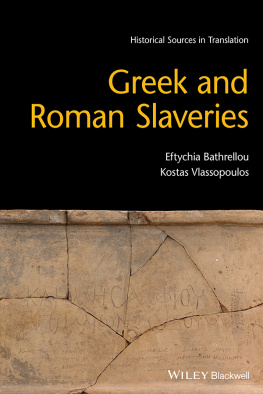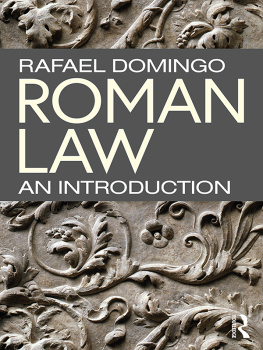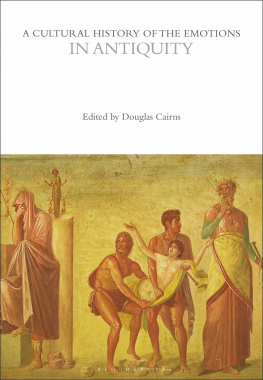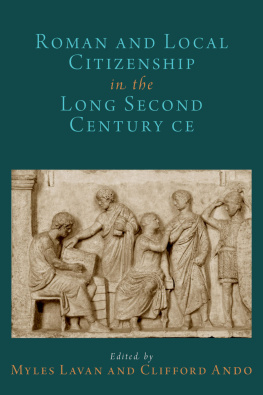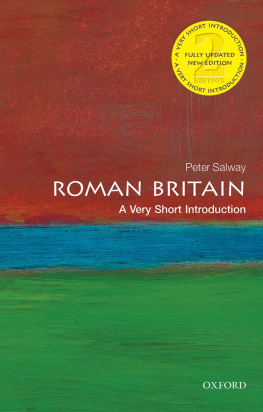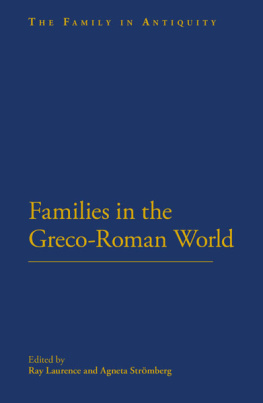
Cassius Dio
ANCIENTS IN ACTION
Boudicca, Marguerite Johnson
Callimachus, Richard Rawles
Catiline, Barbara Levick
Catullus, Amanda Hurley
Cleopatra, Susan Walker and Sally-Ann Ashton
Hadrian, James Morwood
Hannibal, Robert Garland
Homer, Jasper Griffin
Horace, Philip D. Hills
Lucretius, John Godwin
Marius, Federico Santangelo
Martial, Peter Howell
Ovid: Love Songs, Genevieve Lively
Ovid: Myth and Metamorphosis, Sarah Annes Brown
Pindar, Anne Pippin Burnett
Protagoras, Daniel Silvermintz
Sappho, Marguerite Johnson
Spartacus, Theresa Urbainszyk
Tacitus, Rhiannon Ash
Thucydides, P.J. Rhodes
Virgil, Jasper Griffin

Contents
My interest in the writings of Cassius Dio goes back many years. He first caught my attention in my undergraduate years of the 1990s, when I wrote an assignment on the civil war following the death of Julius Caesar. Dio followed me into my doctoral years and my studies on how the influence from Roman Rome rule was felt in Bithynia and Pontus, the province Dio was originally from. However, it was not until later that I developed a specific interest in Dio as an author. This happened on a summers day in the Danish city of Kolding in 2010 when, over lunch, my doctoral supervisor Tnnes Bekker-Nielsen suggested that I made Dio my focus point in my tenure application at the University of Southern Denmark. It was the start of an exciting journey in the company of Dio, his text, my students in Odense and scholars from all over the world of classics and ancient history who share similar interests in the work of this third-century CE historian who has been repeatedly quoted but has not until recently had the attention his work really deserves.
With this book I hope to share my interests in Dio with others who work on historiography, specifically looking at an introduction to Dios thoughts on Romes political history. I hope to draw attention to the benefit of reading not only Dio but any ancient historian or commentator in full, which is the only way to fully appreciate the thoughts and agenda of the author. All too often Dios work has been read in a selective manner, which has led scholars to believe that he did not have a real agenda when writing his eighty books of history other than to write as much of Romes history as he could, from the foundation of the city to the moment he withdrew himself from public life in Rome in 229 CE.
I have benefitted from the help and inspiration of a number of people who have helped to improve this manuscript. In 2013, I taught a Masters course at the University of Southern Denmark, where I read all of what is left of Dios eighty books. It was one of the most stimulating teaching experiences that I have ever had the privilege to be part of. Several good dissertations came out of this course, and I am grateful to say that they have been a strong inspiration to my thoughts on Dios thinking, also in regards to this book. I am particularly grateful to Jakob Fle, Mads Ortving Lindholmer and Christoffer Vassaux who continued their studies of Dio after they left university and with whom I have had the good fortune to meet again at conferences.
A number of my colleagues in classics and history in Denmark and abroad have contributed insightful thoughts and taken the time to consider and discuss my ideas at conferences or after a paper. In this respect, I am profoundly grateful to Carsten Hjort Lange who, although sometimes reluctantly, has shared a large part of my journey with Dio. We hosted a conference titled Cassius Dio: Greek Intellectual and Roman Politician together, published under the same title by Brill in 2016, and later organized an international network, Cassius Dio: Between History and Politics. A deep-felt thanks also goes to George Hinge, Adam Kemezis and Josiah Osgood who took the time to become part of the networks organizing committee. In the course of the two and a half years that the network lasted, I have enjoyed the expertise of Andrew Scott, Christopher Baron, Brandon Jones and Marianne Coudry, and I am looking forward to future projects with them.
I have had the pleasure of working on Dio during longer visits at various institutions. In this respect, I would like to thank Jason Knig and the School of Classics at the University of St Andrews; Greg Woolf and the Institute of Classical Studies in London; Alain Gowing, Department of Classics at the University of Washington; and Antonio Pistellato from the Ca Foscari University of Venice. I would also like to thank Christopher Burden-Strevens for reading the entire manuscript and for his many useful comments, and Roger Rees for reading and improving the text and assisting with the adaption of the English translation of DiosRoman History, first published by Earnest Cary between 1914 and 1927 in the Loeb Library series. Finally, I would like to offer my sincerest gratitude to Tnnes Bekker-Nielsen for the many stimulating conversations we have had over the past twenty years. This book is a product of the way of thinking he encourages day in, day out and of the inspiration he always is. I dedicate this book to him and to our long discussions, of which I hope there will be many more.
Odense, February 2019
Cassius Dio was a man of action. He covered the longest period of Roman history that has come down to us by any ancient historian, and served as a much-trusted member of the imperial administration in some of the most turbulent years in the history of Rome. Dio was also a member of Romes political elite for more than four decades. He entered the Senate sometime in the reign of Septimius Severus (193211) Consilium Principis, after writing a pamphlet on how dreams and portents were predicting Severus accession to the throne.
A link to the new emperor was now established, and Dio was later elected consul, maybe as a mark of gratitude on the part of the emperor. The dates for when Dio served as consul are unclear, and various dates between 205 and 211 have been suggested.
The second consulship was not the experience Dio had hoped for. As governor in Pannonia he was the commander of the armies in the province. Here, he tried to discipline the soldiers to a degree that caused the army to request that he be prosecuted. In Dios version, the emperor did not listen to the complainant, and it was his attempt as governor to improve military discipline that earned him the second consulship (Dio 80[79].4.280[79]5.1). That Alexander may have listened more to the complaints than Dio wants us to believe, is suggested by the fact that the emperor asked Dio to leave Rome to serve as consul in his villa in
As a participant in Roman politics from the late second century and a trusted member of the imperial administration, particularly in the 220s, Dio observed the political chaos after the death of In Dios eyes, Romes political system was facing an existential crisis. The senators were losing the privileged position that they had enjoyed for centuries, and responsibility for military administration was gradually shifting from the senators to members of the equestrian order. It was a change that had been under way for some time but it accelerated when Severus and Caracalla openly favoured the interests of their soldiers over any other groups in Roman society.
Next page

